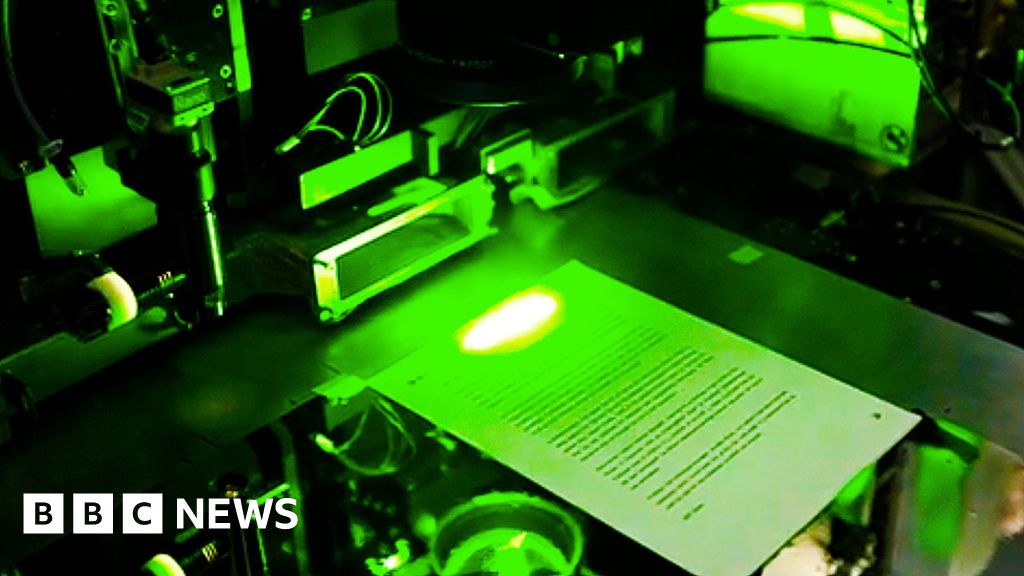gordo
Well-known member
This "de-printer" tech uses a specially coated paper, which stops ink soaking into the page. A powerful laser then vaporises the ink so that the paper can be reused up to 10 times.

 www.bbc.com
www.bbc.com

Celebrating new ways of reducing CO2 - the art of cutting carbon
With the 'de-printer' specially coated sheets of paper can be used 10 times over.











